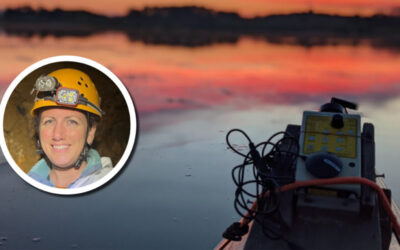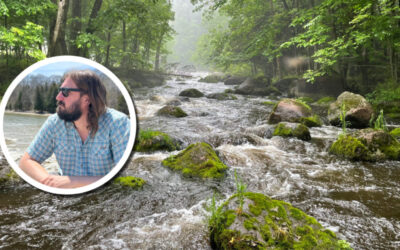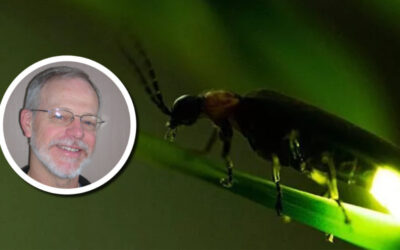Wetland Coffee Break
The Wetland Coffee Break series helps keep our community of wetland lovers connected and learning about wetlands throughout the year, from anywhere! Bring your coffee and learn about wetlands, the plants and animals that call them home, and the many natural benefits they provide to our communities. Sessions are held on Zoom and feature time for audience Q&A.
See below for a list of upcoming presentations and to register. Once you register, you’ll receive an automatic email including the URL link and password you’ll need to access the meeting. We record and post each presentation so you can watch any that you missed live. You’ll find links to these recordings below, and you can also find them on our Facebook page.
We are grateful to all of the presenters for sharing their knowledge and expertise and to everyone interested in learning more about wetlands! If you are interested in giving a Wetland Coffee Break presentation, or if you have a wetland topic you’d like to see covered, please contact Katie.Beilfuss@wisconsinwetlands.org.
We are now able to provide attendance verification to Wetland Coffee Break audience members who attend the live sessions and request this service. We created this mechanism in response to requests from members of the Wetland Coffee Break audience who would like to apply their Wetland Coffee Break learning to their continuing education or certification requirements. Learn more about how to receive attendance verification here.

Register for a Wetland Coffee Break
The Wetland Coffee Break is on winter break, back in 2026. Check back in later this winter for upcoming programs, and subscribe to our every-other-week Wetland News email to get our calendar of events, which includes Wetland Coffee Break episoded. Meanwhile, consider attending the 2026 Wetland Science Conference, happening Feb. 24-26 in Baraboo/Wisconsin Dells, for more great information about wetlands.
Watch previous presentations
Click “Older Entries” below to see more past presentations, or view our Google Sheet index of past presentations here.
Wetland Coffee Break: Dark waters, silent wings: Secrets Wisconsin bats keep
Get to know the eight bat species found in Wisconsin, where and when you might encounter them, how you can keep tabs on them, and how mysterious they remain. Conservation biologist Jennifer Redell will also provide a brief overview of White-nose syndrome and the...
Wetland Coffee Break: Introduction to wetland sedges (Carex)
This introductory talk focuses on basic Carex ecology, morphology, and common terminology, and will be useful for anyone looking to expand their understanding and use of identification guides and keys.
Wetland Coffee Break: Wetland Insects
Entomologist Ann Marsh will explore the process of collecting, storing, and cataloging insect specimens, and examine the types of insects that inhabit wetlands in Wisconsin and discuss their unique life cycles.
Wetland Coffee Break: How do beavers impact water?
Conservation Biologist Cortney Dean takes a look at the data, challenges, and unexpected findings of beaver-water research in northwestern Wisconsin.
Wetland Coffee Break: Hydrology and Hydraulics 101
The hydrology and hydraulics of the watershed and waterways that we work in are key drivers to understanding wetlands and developing preservation and restoration approaches.
Wetland Coffee Break: Taxonomy, natural history, and conservation of Wisconsin fireflies
Tune in to learn about one of our favorite signs of summer—fireflies!






